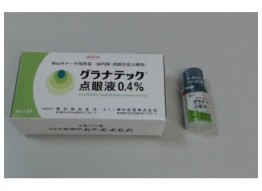Glucoline injections for hepatic dysfunction (monoammonium glycyrrhizinate, L-cysteine, glycine)
What are Glucoline injections for hepatic dysfunction (monoammonium glycyrrhizinate, L-cysteine, glycine)?
The active principles of Glucoline injections are monoammonium glycyrrhizinate, L-cysteine hydrochloride hydrate and glycine. Glycine provides protective effect on the liver, elevating the level of fatty acid transport proteins. Studies showed that combination of monoammonium glycyrrhizinate and cysteine hydrochloride improves oxidative stress and inflammation of liver, increasing survival percentage, decreasing ALT and AST level and improving hepatic pathology
Glucoline injections work by suppressing inflammation and allergic response of the body, by this, improving the condition of the liver. They are effective for the treatment of hepatic dysfunction in patients with pediatric strophulus, eczema or dermatitis, urticaria, pruritus dermatitis, stomatitis, phlycten, drug eruption or toxic eruption and chronic liver disease.
Active principles: monoammonium glycyrrhizinate, L-cysteine hydrochloride hydrate, glycine
Amount: 50 polyampoules * 20 ml
Maker: Fuso Pharmaceutical Industries, Ltd., Osaka, Japan
Indications:
improving hepatic dysfunction in the following disease and conditions:
- pediatric strophulus,
- eczema or dermatitis,
- urticaria,
- pruritus dermatitis,
- stomatitis,
- phlycten,
- drug eruption or toxic eruption,
- chronic liver disease.
How to use
Adults should receive 5-20 ml intravenously once daily. The doctor in charge may adjust the dosage according to the patient's age and symptoms.
Patients with chronic liver disease should receive 40-60 ml via intravenous injection or intravenous infusion once a day. The doctor in charge may adjust the dosage according to the patient's age and symptoms. However, the maximum daily dose of 100 ml should not be exceeded.
Contraindications: do not use for pregnant or breastfeeding women. Do not use for patients with aldosteronism, myopathy, or hypokalemia.
Important information
If an allergic reaction occurs, patient needs to stop using the medicine and consult with their doctor. If patient is taking any other medication or treatment, they should consult with their doctor in advance.





